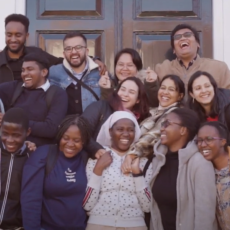
Exposure programme: Bridging Gaps
Are you working on your thesis or doing a PhD, and looking to expand your horizons? Or are you studying and looking for a valuable way to connect with another culture in your free time? Our exposure programme might be just the thing for you. Bridging Gaps allows you to come to PThU / VU University in the Netherlands for three months of study and research. The programme is open to students from all around the world.
What is Bridging Gaps?
Culture and context have a big influence on theology. Understanding your own context and that of others is key to being an exceptional theologian. The Bridging Gaps exposure programme is designed to connect theology students from different parts of the world, so that they can experience their contextual differences. You will be staying in Amsterdam and will be participating in personal research and lectures with students from the Netherlands, Asia, Africa, Latin America and Eastern Europe. During the programme, you will focus primarily on text interpretation and on the correlation between theology and context. Aside from your study, you will also participate in Dutch church life, society and culture.
Contents of the programme
During the three-month Bridging Gaps programme:
- You will be conducting personal research under the guidance of one of our academic professors. At the end of your research you are required to write a paper.
- You will enroll in three separate classes: Class and Context, Usage of the Bible and an elective that matches your research area.
- You will be introduced to two to four different Dutch churches and participate in Dutch church life.
- You will be exposed to Dutch society and culture through living in Amsterdam and joining various excursions.
Scholarship options
If you are accepted, you will be offered a scholarship that covers flight, accommodation, study and a contribution to your living expenses. Our scholarships are provided by Kerk in Actie, VUvereniging, Sormanifonds, Catharina Halkes Fonds, Baptistenseminarium, Doopsgezind seminarium and Evangelisch Lutherse Synode in partnership with Nederlands Luthers Genootschap.
Do you have questions?
For more information about the programme, download the brochure. For more information and details about applying, visit our application webpage. Here you will also find detailed guidelines for applying, and all the forms necessary for submitting your application.
For questions, you can contact Eline van der Kaaden (programme coordinator) at bridging.gaps@vu.nl.
